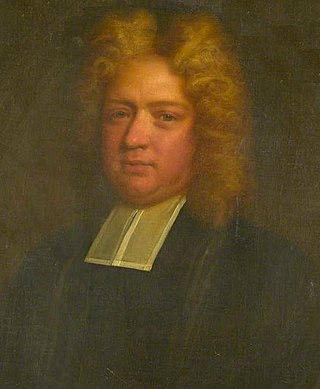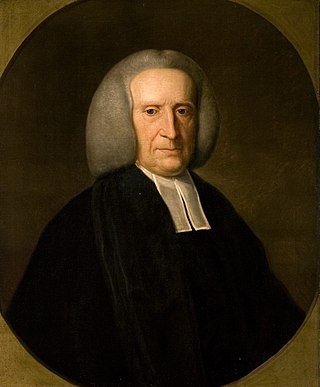Related Research Articles
William Cooper may refer to:

William Sherlock was an English church leader.

John Bramhall, DD was an Archbishop of Armagh, and an Anglican theologian and apologist. He was a noted controversialist who doggedly defended the English Church from both Puritan and Roman Catholic accusations, as well as the materialism of Thomas Hobbes.

Thomas Adams (1583–1652) was an English clergyman and reputed preacher. He was called "The Shakespeare of the Puritans" by Robert Southey; while he was a Calvinist in theology, he is not, however, accurately described as a Puritan. He was for a time at Willington, Bedfordshire, and his works may later have been read by John Bunyan.

Ralph Venning was an English nonconformist Christian.
John Rowe (1626–1677) was an English clergyman, minister to an important Congregationalist church in London.
William Spurstowe (Spurstow) was an English clergyman, theologian, and member of the Westminster Assembly. He was one of the Smectymnuus group of Presbyterian clergy, supplying the final WS of the acronym.

William Gouge (1575–1653) was an English Puritan clergyman and author. He was a minister and preacher at St Ann Blackfriars for 45 years, from 1608, and a member of the Westminster Assembly from 1643.
John Paget was an English nonconforming clergyman, who became pastor at the English Reformed Church, Amsterdam. He was a steadfast defender of Presbyterianism and orthodox Calvinism in numerous controversies with English exiles in the Dutch Republic.
John Downame (Downham) (1571–1652) was an English Puritan clergyman and theologian in London, who came to prominence in the 1640s, when he worked closely with the Westminster Assembly. He is now remembered for his writings.

Obadiah Sedgwick (1600?–1658) was an English clergyman of presbyterian views, and a member of the Westminster Assembly.
Nathan Paget (1615–1679) was an English physician, active during the English Civil War, under the Commonwealth and the Protectorate, and after the Restoration. Despite being a mainstay of a generally conservative profession, he was interested in the experimental methods of the Enlightenment. Although from a strongly Presbyterian background, he seems to have developed radical political and religious sympathies.

William Greenhill (1591–1671) was an English nonconformist clergyman, independent minister, and member of the Westminster Assembly.
Dr. Calybute Downing (1605–1643) was an English clergyman, a member of the Westminster Assembly. Also a civil lawyer, he is now remembered for political views, which moved from an absolutist position in the 1630s to a justification of resistance to authority by 1640, within a contractarian setting.
Thomas Moore of Hawkchurch, Dorset was an English politician who sat in the House of Commons variously between 1640 and 1685. He supported the Parliamentarian side in the English Civil War.
William Whitaker (1629–1672) was an English Puritan ejected minister.

William Richardson (1698–1775) was an English academic and antiquary, Master of Emmanuel College, Cambridge from 1736.
John Collins was an English Independent minister.

John Moore (1595?–1657) was an English clergyman of Puritan views, known as an author of pamphlets against enclosures.
Bridget Pagetnée Masterson was an English Puritan who acted as her husband John Paget's literary executor and editor.
References
- Keith L. Sprunger (1982), Dutch Puritanism
- Attribution
 This article incorporates text from a publication now in the public domain : "Cooper, William". Dictionary of National Biography . London: Smith, Elder & Co. 1885–1900.
This article incorporates text from a publication now in the public domain : "Cooper, William". Dictionary of National Biography . London: Smith, Elder & Co. 1885–1900.